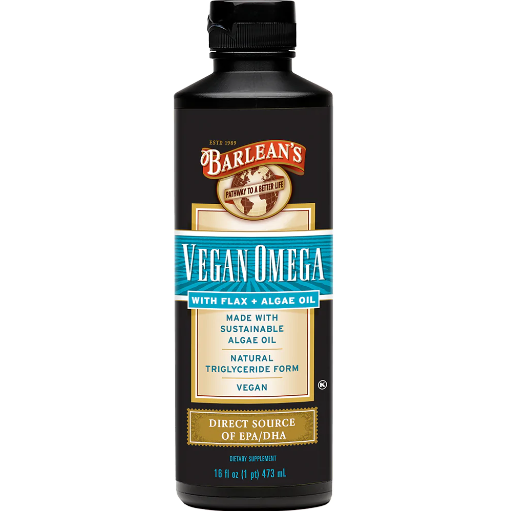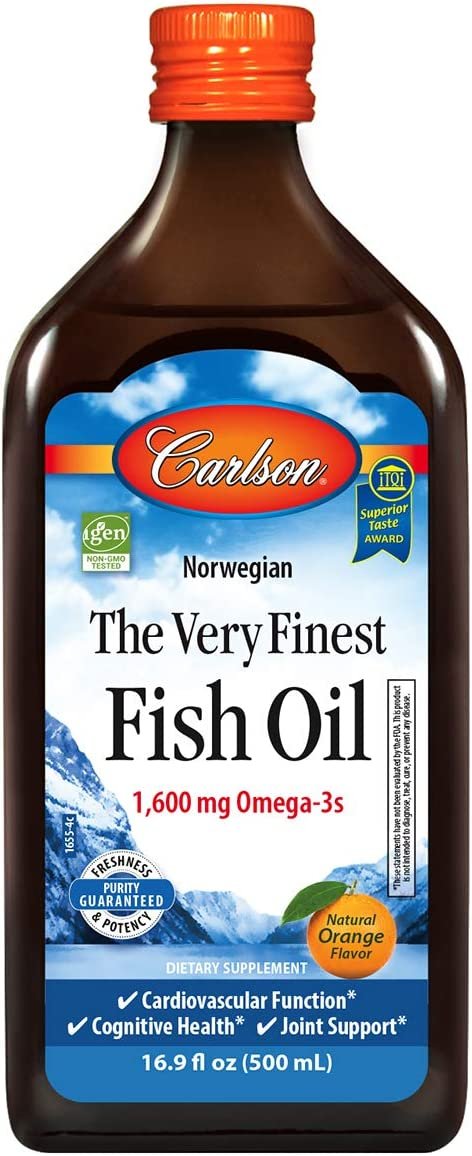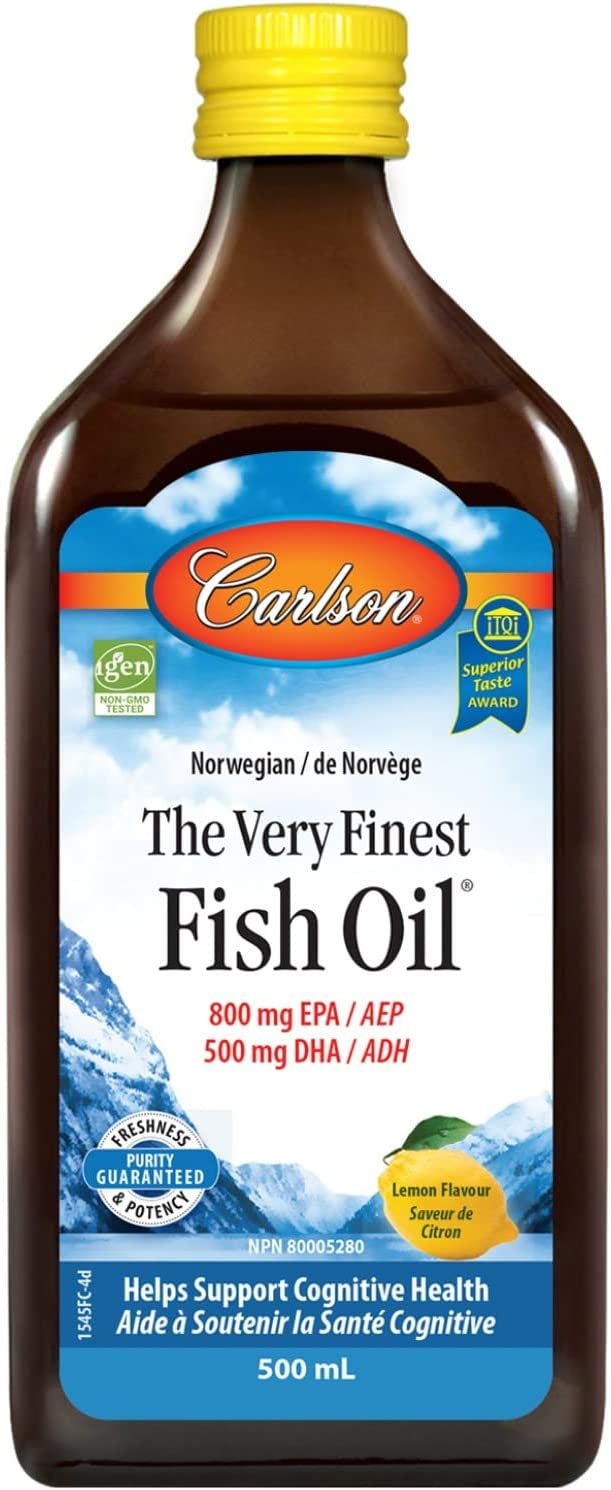I've written about fish oil and its uses numerous times, but I've been reading a lot about high dose fish oil and its benefits, and I wanted to share my findings because I was really impressed with the reports.
Omega 3s are known as essential fatty acids, which means that they aren’t produced in the body and must be obtained through diet or supplements. If you’re not eating quality fatty fish multiple times a week (salmon for example), it’s likely that you’re deficient. There are vegetarian sources of omega 3s, though they generally aren’t as potent as fish oil supplements.
The two main parts beneficial components of omega 3s are EPA and DHA. Fish oil supplements vary widely in the strength of those two ingredients, so it’s always a good idea to look at the “Supplement Facts” on the back of the label to see what you’re really getting. Many products will say, “1,000mg of Fish Oil” on their labels, but actually contain far less than that of actual omega 3s and EPA and DHA. A product that’s lower in EPA and DHA per pill doesn’t necessarily mean it’s bad, but in my opinion, if you’re going through the effort of taking a supplement, you want to get a good strength per dose so you’re not wasting your time.
Omega 3s have so many benefits for cardiovascular health, joint health, brain function, and more. Adding any amount of omega 3s to your diet is beneficial, though if you’re taking it to help with a specific health concern, it’s a good idea to make sure you’re getting enough to make a difference.
For general health, most people take around 1,000 mg of omega 3s per day, but if you have issues with your cardiovascular health, joints, focus, or mood, it may be a good idea to take a higher dose.
The American Heart Association just reported in their journal that they recommend 3 grams of omega 3 fatty acids as the “optimal daily dose” for helping to lower blood pressure, and that the effect was especially pronounced in people already diagnosed with hypertension.
High dose omega 3s are also recommended by physicians to help with lowering cholesterol- especially triglyceride levels. Scientists have found that 4 grams per day is what’s recommended to lower triglycerides. The American Heart Association reports that in people with severe hypertriglyceridemia (the fancy name for very high triglycerides) taking 4 grams (or 4,000mg) of omega 3s may reduce triglyceride levels by more than 30%, which is pretty impressive.
I also recently read an article about a woman living with rheumatoid arthritis that had been suffering from it for many years and having extreme problems with pain and inflammation, even after taking all sorts of prescriptions and everything else. She was recommended by a new physician to try using high dose omega 3s: 2,000-4,000mg a day, and wrote about how it literally changed her life and helped so much with reducing the pain and inflammation she’d been dealing with for years. On her physician’s advice, she began taking a tablespoon of flavored fish oil per day, with impressive results not only in her reports of reduced pain, but in lab tests of inflammation which were brought back to normal levels for the first time in years.
I don’t know that that is a typical response since I know that rheumatoid arthritis can be difficult to treat, but fish oil is something that’s not harmful, and has lots of benefits, so I’d say it’s definitely worth a try.
If you're doing high dose fish oil, it's easier to do it as a liquid than to take as softgels, since generally it'll be at least 4 softgels a day to get the right strength for a high dose fish oil. We'd recommend Carlson's omega 3 fish oil liquids because of their purity and taste-they have several great tasting flavors.
Liz (the other owner of Pass Health Foods) says, "I put the Carlson orange fish oil in my smoothie and I highly recommend it. It doesn't taste at all like fish; I wouldn't do it if it ruined my smoothie."
I mentioned to her that I would be writing about fish oil but in higher dosages and asked if she would try doing a tablespoon of the fish oil in her smoothie. When I asked how it was the next day she said she actually liked it better and that it tasted so nice because the orange was such a great compliment to the fruits in her smoothie. I asked if it was too oily or changed the texture or consistency, and she said not at all.
I think the lemon is probably the most popular for people taking it straight off a spoon, but if you're mixing it in with a smoothie orange might be the best bet. Liz certainly thinks so.
I’d recommend the one by Carlson because we’ve had a lot of customers that have used their flavored fish oils for years with good results. Their fish oils are also independently lab tested for purity, and they’re in charge of every step of the process from catch (which is wild caught in Norway) to bottling, so they have better control over their product- many companies will purchase bulk fish oil from other companies and repackage it, which can lead to problems with quality control. They’re also a family owned and run American company since 1965. Even better, we have all of our Carlson products on sale for 20% off every day at Pass Health Foods, to pass on the savings to make staying healthy more affordable.
My only caution with fish oil is that it can have a slight blood thinning effect. Usually that's something that's viewed as positive for cardiovascular health, but if you are on prescription blood thinners like Coumadin, high dose fish oil may not be for you. As with any supplement, it's a good idea to let your doctor know what you're taking, just in case. Omega-3s are essential fatty acids, however, so they are definitely needed for proper body functioning.
If you have any questions about fish oil or omega 3s, stop by the store, we’d be happy to help you further. We’re at 7228 W. College Drive in Palos Heights, Illinois.











